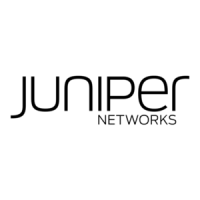• Use the no version to restore the default value, 7000 routes.
• See ip dvmrp route-limit.
Filtering DVMRP Reports
You can configure an interface to accept only reports with routes that appear on a
standard IP access list. You can refine the set of accepted routes further, by defining a
second access list of neighbors who can supply the specified routes.
For example, suppose you define an access list that specifies that the router accepts
only reports for the route 172.16.2.0/24. You then define a second access list that specifies
that only neighbors 192.168.1.1 and 193.168.1.1 can supply this route. If neighbor 192.168.2.2
supplies the route, the DVMRP router rejects this report.
You can also modify the value (distance) that the router associates with a DVMRP route
when it computes the RPF interface for the source of a multicast packet. By default, the
router associates a distance of 0 with DVMRP routes; this value specifies that the router
use DVMRP, rather than a unicast routing protocol, to transport multicast datagrams.
However, in a configuration where PIM discovers multicast routes and a unicast routing
protocol performs RPF lookups, you can increase the administrative distance to favor
the unicast protocol.
For information about defining access lists, see Configuring Routing Policy in the JunosE
IP Services Configuration Guide.
ip dvmrp accept-filter
• Use to filter routes in DVMRP reports in accordance with a standard IP access list.
• Specify a standard IP access list of sources for which the interface can accept routes.
• Specify a DVMRP administrative distance to favor a unicast routing protocol.
• Specify a neighbor list to restrict the neighbors from which reports for routes on the
first list can be accepted.
• Example
host1:boston(config-if)#ip dvmrp accept-filter boston-list 4 neighbor-list
boston-neighbors
• Use the no version to disable a filter.
• See ip dvmrp accept-filter.
Configuring DVMRP Summary Addresses
You can configure an interface to advertise a summary address with a known metric
rather than a more specific route. DVMRP advertises the summary address if the DVMRP
routing table contains a more specific route that matches the address and mask of the
summary address.
Copyright © 2010, Juniper Networks, Inc.126
JunosE 11.2.x Multicast Routing Configuration Guide

